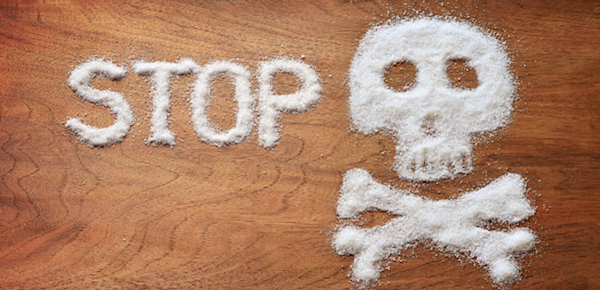Is Sugar as Deadly as Cigarettes?
We don’t have to go looking for added sugar. It’s practically everywhere and comes in many forms, such as sucrose, maple syrup, fructose, molasses, brown sugar, cane sugar, honey and high fructose corn syrup. You can and will find added sugar in desserts, candy, sodas, and covertly in processed foods such as ketchup, canned sauces, cereals, energy bars, energy drinks, bread and so much more. If you read Gary Taube’s latest book, “The Case Against Sugar,” you’ll see why a sugar habit can easily be compared to a nicotine habit.
Gary Taube is the co-founder of the Nutrition Science Initiative. In his 2010 best seller, “Why We Get Fat,” he argued that carbohydrates like grains and starchy vegetables were the true culprits behind the obesity epidemic. His new book, “The Case Against Sugar” takes this argument a step further by zeroing in on the harmful effects of sugar.
In a recent article he wrote for the Los Angeles Times, Mr. Taube posited, “How often can we smoke cigarettes without doing at least some harm to our health? Doctors these days answer ‘never,’ thus redefining the concept of moderation. We don’t say smoking too much causes lung cancer, although that’s surely true. We say smoking does. The same hard line may also make sense for sugar. If it takes 20 years of either smoking cigarettes or consuming sugar for the consequences to appear, how can we know whether we’ve smoked or consumed too much before it’s too late? Isn’t it more reasonable to decide early in Iife (or early in parenting) that not too much is as little as possible?”
Research continues to grow with regard to the evils of sugar. Evidence is being amassed that may soon prove that sugar is the cause of metabolic syndrome, a disorder that afflicts 75 million Americans, as cited by the Centers for Disease Control and Prevention. Metabolic syndrome is the group of risk factors that raises the risk for heart disease, diabetes and stroke.
Risk factors include traits, conditions and habits that increase the chances of developing a disease. One major habit contributing to metabolic syndrome is the consumption of sugar that results in insulin resistance. This occurs when the pancreas responds to high volumes of sugar by producing more insulin and the cells that normally use glucose for power, fail to respond. The vicious cycle often ends up in type 2 diabetes.
If we understand why not smoking is important to good health, we can see why not consuming added sugar may similarly decrease our risk factors. At Nikken, we push for the Active Wellness lifestyle and pledge to improve our Nikken Wellness products as evolving science informs us. That’s why (hyperlink) Kenzen Ten4 energy drink mix has no added sugar. Consumers can add their own sweetener, if they please, but our commitment is to promote Active Wellness through healthy eating, drinking and sleeping.



